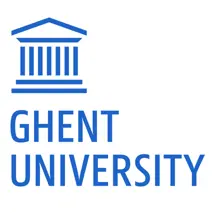Economics Terms A-Z
Autarky
Read a summary or generate practice questions using the INOMICS AI tool
Autarky’s definition, according to the Oxford dictionary, is “economic independence or self-sufficiency”. It can also be spelled “autarchy”. This word is seldom used outside of academic contexts like economics or political science. Unfortunately, it may be sprung on you in economics courses without any warning, and since it is an actual word it may not be explained.
So what does autarky entail, exactly? A nation that is completely isolated from the outside world and refuses to trade or interact with other countries as much as possible would be described as isolationist. This type of nation would have a fully autarkic economy. They would refuse international trade and only consume goods produced within the country. This is a closed economy, and we would describe it as being “in autarky”.
In the modern world, autarky is a state that is very hard to maintain. Global trade has become more interconnected, cheaper, and faster than it was in the past. The benefits of isolationist economic policies are hard to argue for in the modern age, especially with examples of comparative advantage and arguments against trade barriers.
In fact, most economists believe that free trade is beneficial for economic growth, while trade barriers resulting from protectionist policies are a hindrance. Unsurprisingly then, most countries in the modern age trade with one another even if they have some protectionist policies like tariffs in place for some industries or goods. Being completely self-sufficient (“in autarky”) is a rare case in the modern age, although countries may seek to achieve autarky in certain strategic areas (energy supply, for instance).
An example of a largely autarkic nation is North Korea. It is a nation that faces heavy economic sanctions and has few opportunities to trade with other countries. Even nations that will trade with it, like China, have a much larger volume of trade with other countries due to the low production of goods for export in North Korea. So, the majority of its output is produced and consumed by North Koreans. Of course, even North Korea still has some trade with other countries – like China – and so isn’t fully autarkic.
Good to Know
The term “autarky” should not be confused with “autocracy”. The latter is a system of government where one person rules with absolute power (i.e., a dictator). Nations governed by an autocracy may have very nationalistic tendencies, and may also have protectionist trade policies, but that does not make them fully autarkic. Nor does a country that maintains a high degree of autarky necessitate any specific political structure.
Autarky does, however, have appeal for political reasons. Politicians may argue for trade barriers to protect domestic industries (even though this causes deadweight loss), or governments might want to limit their economic dependence on other nations for security reasons. In these cases, a certain degree of autarkic policy may be called for.
Autarkic arguments are also central to many populist policies and platforms, which have become more widespread in the past decade (i.e., the “Make America Great Again” movement in the United States). Often, these platforms call for domestic protections to support or revive local industries as a central feature of their policy.
Unfortunately, many of these policy proposals downplay or fail to take into account the detrimental effects of both increased trading costs and less open and efficient markets on the economy. There is a risk of artificially inflating consumer prices due to implementing too many inefficient protections.
For example, imagine that importing a good (like a car) is cheaper than making it domestically for a certain country. If that country decides to implement tariffs on foreign cars to protect domestic production, this is economically inefficient. Consumers will face artificially higher prices and fewer car choices than they would have if cars were freely traded, so overall utility is diminished.
-
- PhD Program, Program, Postgraduate Scholarship
- Posted 1 week ago
PhD Program in Management - 11 Fully Funded Scholarships
at Luiss Guido Carli University of Rome in Rome, Italie
-
- Postdoc Job
- Posted 1 week ago
Postdoctoral Research Fellow Opportunity
At University of Notre Dame in Notre Dame, États-Unis
-
- Postdoc Job
- Posted 1 week ago
Postdoctoral Researcher (all genders welcome)
At Georg-August-Universität Göttingen in Allemagne












